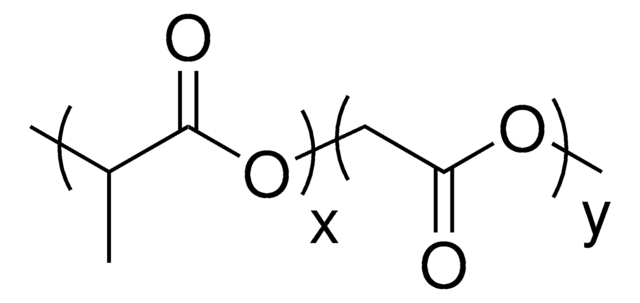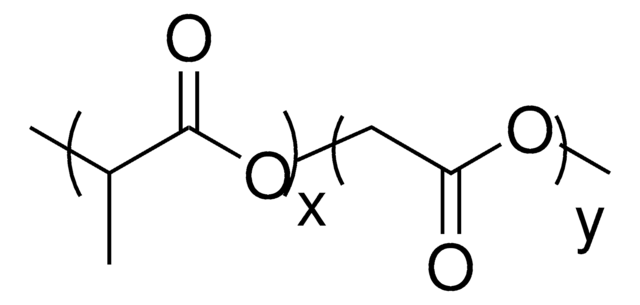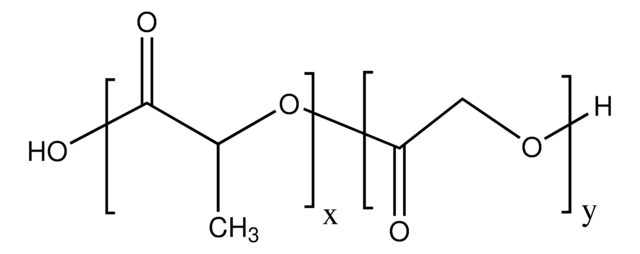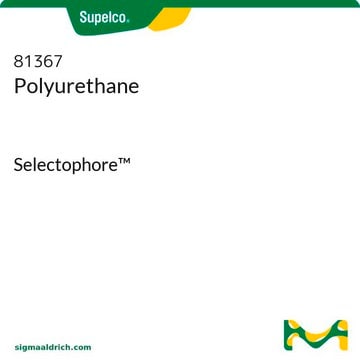908630
Poly(lactide-co-glycolide)-Flamma Fluor near-IR
lactide:glycolide (50:50), Mn 20,000-30,000
Sinónimos:
PLGA near IR, PLGA-FPI749, near IR conjugated PLGA
Iniciar sesiónpara Ver la Fijación de precios por contrato y de la organización
About This Item
Fórmula lineal:
(C3H4O2)x(C2H2O2)y
UNSPSC Code:
12162002
NACRES:
NA.23
Productos recomendados
form
powder or chunks
feed ratio
lactide:glycolide (50:50)
mol wt
Mn 20,000-30,000
average Mn 20,000-30,000
composition
Dye Content, 7.54 μg/mg (polymer)
color
blue to teal
storage temp.
−20°C
Application
Poly(lactide-co-glycolide)-Flamma Fluor near-IR is labelled with Flamma Fluor FPI749 near-IR dye. It can be used in the formation of fluoresent nanoparticles for in-vivo imaging applications.
Storage Class
11 - Combustible Solids
wgk_germany
WGK 3
flash_point_f
Not applicable
flash_point_c
Not applicable
Elija entre una de las versiones más recientes:
Certificados de análisis (COA)
Lot/Batch Number
¿No ve la versión correcta?
Si necesita una versión concreta, puede buscar un certificado específico por el número de lote.
¿Ya tiene este producto?
Encuentre la documentación para los productos que ha comprado recientemente en la Biblioteca de documentos.
Fanfei Meng et al.
ACS nano, 12(7), 6458-6468 (2018-06-20)
Fluorescence-based whole-body imaging is widely used in the evaluation of nanoparticles (NPs) in small animals, often combined with quantitative analysis to indicate their spatiotemporal distribution following systemic administration. An underlying assumption is that the fluorescence label represents NPs and the
Yihan Xu et al.
Journal of biomedical materials research. Part B, Applied biomaterials, 105(6), 1692-1716 (2016-04-22)
Poly (lactic-co-glycolic acid) (PLGA) copolymers have been broadly used in controlled drug release applications. Because these polymers are biodegradable, they provide an attractive option for drug delivery vehicles. There are a variety of material, processing, and physiological factors that impact
R Gref et al.
Science (New York, N.Y.), 263(5153), 1600-1603 (1994-03-18)
Injectable nanoparticulate carriers have important potential applications such as site-specific drug delivery or medical imaging. Conventional carriers, however, cannot generally be used because they are eliminated by the reticulo-endothelial system within seconds or minutes after intravenous injection. To address these
Nuestro equipo de científicos tiene experiencia en todas las áreas de investigación: Ciencias de la vida, Ciencia de los materiales, Síntesis química, Cromatografía, Analítica y muchas otras.
Póngase en contacto con el Servicio técnico






